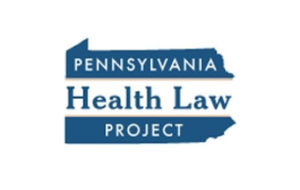PA Health Policy Update for the Week of September 6
The following is an update of selected state health policy developments in Pennsylvania for the week of September 6-10, 2021. (Some of the language used below is taken directly from state documents.)
General Assembly
The House of Representatives announced it will return to session a week early to address the Wolf administration’s implementation of a mask mandate for K-12 schools and child care facilities. The House, which was originally scheduled to return on September 27, has added September 20, 21, and 22 as voting session days.
 Department of Health
Department of Health
- The Department of Health has issued a health alert updating guidance about tuberculin skin testing for tuberculosis for individuals who have been vaccinated against COVID-19. The department no longer recommends waiting four weeks from the final COVID-19 vaccination for immune-based TB testing.
- The Department of Health has published notices in the Pennsylvania Bulletin authorizing expanded scope of practice for various professionals functioning as part of an emergency medical services agency that has been licensed as a critical care transport ambulance service.
- The Department of Health will offer free potassium iodide, or KI, tablets on Thursday, September 16 to Pennsylvanians who are within 10 miles of the state’s four active nuclear power plants. Learn more from this department news release.
 Department of Human Services
Department of Human Services
- The Department of Human Services has issued a Medical Assistance Bulletin announcing the addition of CPT codes 0003A and 0013A to the Medical Assistance Program Fee Schedule for the administration of a third dose of the Pfizer and Moderna COVID-19 vaccines. See the notice here.
- The Department of Human Services has posted a notice announcing FY 2022 rates for selected services provided by the state’s Office of Mental Health and Substance Abuse Services (OMHSAS).
- The Department of Human Services has announced that it will allocate $255.556 million in total funds in FY 2022 for inpatient disproportionate share hospital (Medicaid DSH) payments to qualifying inpatient acute-care general, psychiatric, and rehabilitation hospitals and qualifying psychiatric and rehabilitation units of acute-care general hospitals, outpatient supplemental payments to qualifying inpatient acute-care general hospitals, and direct medical education payments to qualifying inpatient acute-care general hospitals. The department is not changing the state plan provisions addressing the qualifying criteria or payment methodology for these payments. Learn more from this Pennsylvania Bulletin notice.
- The Department of Human Services has announced its intention to make COVID-19-related Medicaid DSH payments to qualified hospitals and how much it will pay hospitals based on their Medical Assistance days and their degree of Medicaid dependence. See the Pennsylvania Bulletin notice here.
- The Department of Human Services is adding and end-dating procedure codes as a result of implementing the 2021 updates published by the Centers for Medicare & Medicaid Services to the Healthcare Common Procedure Coding System (HCPCS). The department also is adding other procedure codes and making changes to procedure codes currently on the Medical Assistance Program Fee Schedule, including fee adjustments. Learn more from this Pennsylvania Bulletin notice.
- The Department of Human Services has published its latest monthly physical health managed care enrollment report. Find it here.
Pennsylvania Rural Health Model
The federal Center for Medicare and Medicaid Innovation has posted its first report on the performance of its Pennsylvania Rural Health Model. Find that report here and go here for further information about the program.
COVID-19: By the Numbers
- The daily number of new COVID-19 cases remained high this week, including the first day (today) with more than 5000 new cases since mid-April.
- The number of new COVID-19-related deaths increased over the past week.
- For the week ending September 9 in Pennsylvania, every county in the state is experiencing a high level of COVID-19 transmission. The CDC classifies transmission as follows:
- Low: 0-10 new cases per 100,000 residents over the past week or 0-5% positivity rate
- Moderate: 15-50 new cases per 100,000 residents over the past week or 5-8% positivity rate
- Substantial: 50-100 new cases per 100,000 residents over the past week or 8-10% positivity rate
- High: 100+ new cases per 100,000 residents over the past week or 10%+ positivity rate
- The number of Pennsylvanians hospitalized because of COVID-19 has risen 17 percent since the beginning of the month, the number on ventilators has risen 14 percent, and the number in hospital intensive care units has risen 11 percent.
- According to the state’s revised figures, 66.8 percent of Pennsylvanians 18 years of age and older are now fully vaccinated – 6.0 million people – up from 66.0 percent last week. Only 11,000 Philadelphians and 65,000 other Pennsylvanians (fewer than last week) completed a vaccine regimen in the past week.
 Around the State
Around the State
- The Delaware County Board of Health is now hiring people to staff the county’s new health department, which is scheduled to begin operations in January, the Delaware County Times reports.
- The city of Reading has been awarded $3.3 million by the federal government to remove lead paint from homes, according to the Reading Eagle.
- The mayor of Scranton will propose legislation to the city’s council to decriminalize possession of fentanyl test strips, which are currently considered drug paraphernalia under state law. The Scranton Times-Tribune explains why.
- Children ages 12 and under constituted 12 percent of Allegheny County’s COVID-19 cases in August, the county’s health director told the Pittsburgh Tribune-Review.
Independent Regulatory Review Commission
Pennsylvania’s Independent Regulatory Review Commission has rejected regulations proposed by the state’s Department of Drug and Alcohol Programs for the licensure or certification of drug and alcohol recovery houses that receive funds or referrals from the department or a federal, state, or other county agency to ensure that a drug and alcohol recovery house provides a safe environment for residents. See the commission’s explanation of its decision in this Pennsylvania Bulletin notice.
Stakeholder Events
- The consumer subcommittee of the Medical Assistance Advisory Committee will meet on September 22 at 1:00 pm. Go here to register to participate remotely.
- The Medical Assistance Advisory Committee will meet on September 23, 2021 at 10:00 am. Go here to register to participate remotely.
- The Patient Safety Authority will hold a virtual public meeting on Thursday, September 23 at 1:00 p.m. and it is open to the general public. For information about how to join the meeting, see this Pennsylvania Bulletin notice.
 The Wolf administration has directed vaccine providers to support COVID-19 vaccination clinics and has introduced a free COVID-19 testing program for schools across the state. Learn more from
The Wolf administration has directed vaccine providers to support COVID-19 vaccination clinics and has introduced a free COVID-19 testing program for schools across the state. Learn more from  Department of Drug and Alcohol Programs
Department of Drug and Alcohol Programs Three times since 2015 the state has issued requests for proposals from managed care companies and all three times at least one of the losing parties has responded to its defeat by filing a lawsuit.
Three times since 2015 the state has issued requests for proposals from managed care companies and all three times at least one of the losing parties has responded to its defeat by filing a lawsuit. Legislative Update
Legislative Update Department of Drug and Alcohol Programs
Department of Drug and Alcohol Programs Pennsylvania Bulletin
Pennsylvania Bulletin Included in this month’s edition are articles about:
Included in this month’s edition are articles about: